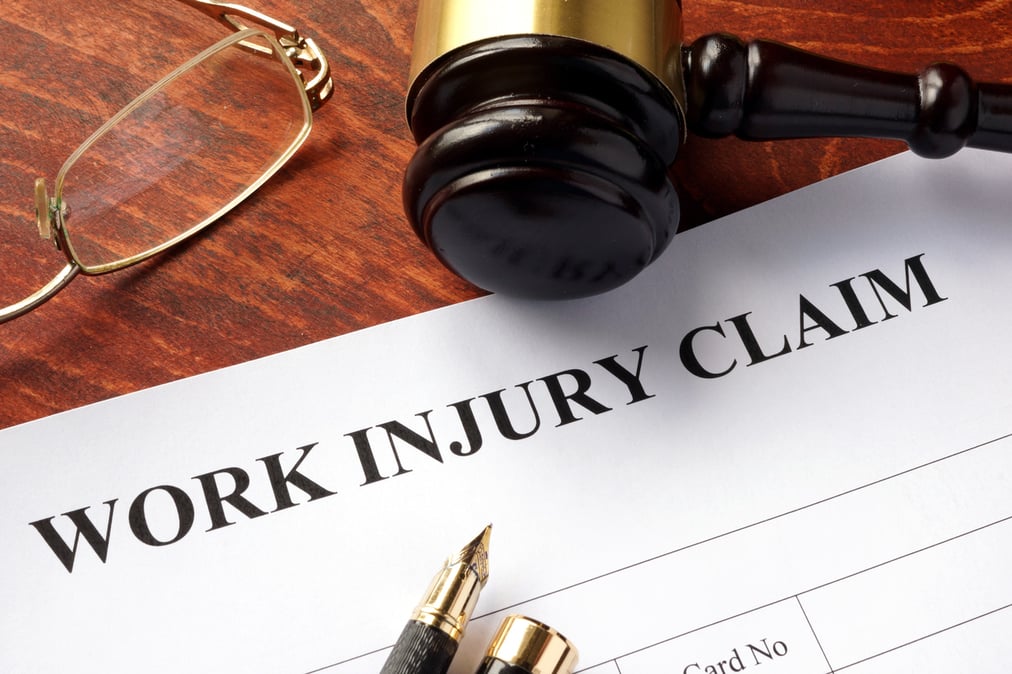
Workers' Compensation - Navigating Regulations as an Employer

Workers’ compensation laws protect workers who have been injured at work or get sick because of their job. An injured worker is entitled to certain protections, such as compensation for medical bills or lost wages. The responsibilities of an employer during a workers compensation claim can be confusing or difficult to navigate, so it’s important to work with a professional who has experience with these types of claims.
Keep reading to learn more about what workers’ compensation is, when you need to carry workers’ comp insurance, and what to do if an employee is injured at work. We will also discuss some challenges that may arise should your employee file a workers’ comp claim.
What is Workers’ Compensation?
Workers’ compensation is a form of liability insurance that is designed to protect workers and employers. It provides partial medical care and income protection to employees who are injured at work or get sick because of their job.
When an employee is approved for workers’ compensation, it provides them with payment for medical expenses, lost wages, and rehabilitation costs to help offset the loss of income due to the injury or illness. Workers’ compensation regulations are set by the state and can be complicated, so it’s important to work with an expert if your employee is injured at work.
As an employer, it’s important to understand these regulations. In the next section, we will explain what types of businesses need to carry workers compensation insurance.
Learn More: Quality Investigations Lead to Positive Outcomes for Workers' Compensation Claims (veritasclaims.com)
Do I Need to Carry Workers’ Comp Insurance?
Workers’ compensation insurance is required for any business that has employees who are not owners. Workers compensation laws vary from state to state, but every state mandates its coverage.
The coverage of the insurance policy can vary based on the package purchased by the employer but must meet a minimum threshold established by each state. There are different requirements and guidelines for workers’ compensation claims depending on where you are located. The methodology for calculating lost time, the extent of benefits, and treatment instructions can vary drastically by state.
My Employee is Injured at Work, Now What?
When your employer is injured at work, your job as an employer is to act fast and comply with workers’ compensation laws. For emergencies, contact 911; and for non-emergency medical assistance, coordinate with the medical facilities the workers’ compensation.
Gather evidence about the incident. The details will need to be communicated to the workers’ comp claims adjuster. Document the following:
- who was injured
- what happened
- where the incident took place
- medical treatment that was administered
- any witnesses
Additionally, you should promptly report the incident to your workers’ compensation provider and follow the recommendations of your workers’ comp insurance adjuster.
Learn More: 4 Claim Handling Best Practices for WC First Report of Injury (veritasclaims.com)
Workers’ Compensation Challenges
When the employee has been seen by a medical doctor and treatment has begun, the focus will shift to helping the employee return to work. This can be an arduous process involving follow-up appointments, work restrictions, and various regulations that will need to be adhered to.
As the employer, you will need to provide an environment that allows for the restrictions in the workplace. This means that you may need to be flexible with the employee to navigate the return-to-work process.
There may come a time when the employee is not interested in returning to work and the doctor may accommodate that request. At this point, the workers’ adjuster, who is the liaison for the employer, employee, and doctor will need to intervene and find out why the doctor has not released the employee to return to work.
Allowing the employee to return to work, even in a restricted sense, may help them heal faster, both physically and mentally.
Learn More: Consequences of Terminating an Employee While on Workers' Compensation (veritasclaims.com)
Tying it All Together
While it can be confusing and frustrating to navigate workers’ compensation laws, your primary role as the employer is to follow the recommendations of your workers’ compensation claims adjuster.
Veritas Administrators specializes in nationwide workers’ compensation claims handling. Customizable to fit your needs, our team can serve as an extension of your organization in a full TPA capacity or specific task work. Schedule a call to learn more about all the ways in which Veritas can take workers’ compensation claims problems off of your desk.

